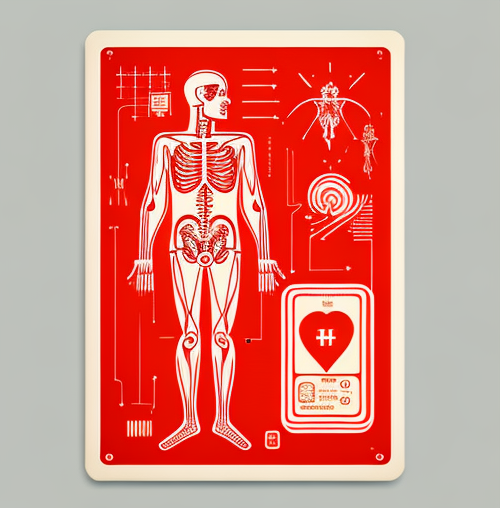The Ministry of Health and Welfare (MOHW) unveiled a proposal to provisionally extend health insurance benefits to medical AI and digital therapeutic apparatuses for a span of three years through the Health Insurance Policy Review Committee in the month of July.
The governmental body is actively seeking input concerning this transient reimbursement initiative and concurrently formulating precise guidelines governing the application of these benefits.
Nevertheless, radiologists are vociferously advocating for prerequisite measures to temper any heedless proliferation.
The Korean Society of Radiology (KSR) has unequivocally stated that it doesn’t harbor opposition to the core concept of provisional inclusion per se.
“The matter of insurance coverage pertaining to medical AI and digital therapeutic contrivances has already ignited fervent discussions on the global stage,” affirmed Choi Jun-il, the KSR’s head of the health insurance committee, concurrently serving as a distinguished professor of radiology at Seoul St. Mary’s Hospital. “As professionals who operate in close conjunction with medical AI, the KSR fundamentally aligns with the underlying discourse regarding this insurance coverage.”
However, it’s vital to recognize that unrestrained compensation could potentially unleash substantial detrimental repercussions, and, as seasoned professionals, the KSR bears the responsibility of tendering sagacious recommendations pertaining to judicious measures,” he added.
Choi accentuated that this stems from the realization that ill-conceived policies have the potential to exert a far-reaching impact on not only the healthcare system but also the financial burdens borne by the populace.
Choi further underscored that the classification of pioneering medical technology necessitates judicious evaluation.
In the context of South Korea, provisional reimbursement eligibility extends to digital therapeutic apparatuses and AI medical devices that have earned the designation of innovative medical devices under the jurisdiction of the Ministry of Food and Drug Safety, or alternately, the classification of innovative medical technology under the purview of the National Evidence-based Healthcare Collaborating Agency (NECA).
“The distinction between innovative medical devices and pioneering medical technologies can be grasped as the difference between an apparatus and a medical practice,” elucidated Choi. “At present, three AI medical devices within the realm of radiology have garnered recognition as pioneering medical technologies.”
While the initial discussions surrounding transient reimbursement were characterized by a dearth of innovative medical technology designations, Choi expounded that the tally of innovative medical device recognitions is registering an exponential surge.
As per Choi, the evaluation process for pioneering medical technology disproportionately leans toward the technical assessment of devices, potentially affording eligibility for provisional reimbursement even to technologies with limited medical substantiation.
Advocating for reform, he emphatically asserted that compensation allocated for AI medical tools should be judiciously confined to reasonable thresholds.
“The prevailing viewpoint upheld by the KSR posits that compensation allocated to AI medical devices should not surpass the threshold of 5 percent, an amount that constitutes half of the comprehensive remuneration radiologists receive for their services, notwithstanding their multifarious responsibilities, encompassing quality assurance, scheduling, addressing attending physician queries, and managing the adverse effects stemming from radiological examinations. It must be acknowledged that the value contributed by AI software represents a mere fraction of these multifaceted obligations,” Choi asserted.
Crucially, it’s imperative to discern that AI devices remain devoid of any responsibilities vis-a-vis clinical medical practice, Choi added.
According to Choi, the policy framework articulated by the KSR advocates a cap on compensation for AI medical devices, preventing it from exceeding 50 percent of the total fees accorded to radiologists.
“Even in instances where AI medical devices are deserving of compensation, it’s incumbent upon us to eschew any rationale that seeks to dilute the remuneration awarded to physicians, encompassing the fees earmarked for radiologists’ interpretation, physician consultations, or specialist fees,” Choi emphasized.
Notwithstanding these viewpoints, the KSR has voiced profound reservations concerning the prospects of provisional non-reimbursement, underscoring a palpable discord between the medical community and certain commercial entities.
He sounded a cautionary note, suggesting that enterprises could potentially impose exorbitant tariffs, thereby undermining the integral role played by human physicians.
“In fact, certain entities have proffered proposals suggesting out-of-pocket expenses amounting to as much as 30 percent of the examination cost, a fee structure that is deemed untenable for an AI medical device that discharges a minuscule fraction of the multifarious functions performed by a physician,” Choi cautioned. “Regrettably, there exists no substantive mechanism to regulate these prices if these products are relegated to the category of provisional non-reimbursement.”
In a concerted effort to avert the potential misappropriation of this technology, Choi delineated that the KSR has advanced a quartet of guidelines for inclusion within the non-payment framework — these encompass explicit specifications for AI medical devices, judicious restrictions on non-payment authorizations, contemplation of mechanisms governing the control of non-payment pricing, and the imposition of a mandatory requirement for prior approval from radiologists before preferencing any claims.
“In essence, the stance adopted by the KSR is rooted in its endorsement of the provisional approval of health insurance or non-payment status for deserving AI medical technologies. However, we staunchly oppose policies that lack a foundation in medical science, and instead, acquiesce to industrial ideologies, whereby these technologies are gratuitously rewarded solely by virtue of their novelty,” Choi concluded.










Leave a Reply